Introduction
It’s not uncommon for senior dogs to start losing weight as they age, but it’s important not to ignore it. Whether it’s from reduced appetite, medical issues, or metabolic slowdown, knowing how to help a senior dog gain weight can dramatically improve their energy, comfort, and lifespan.
This in-depth guide will walk you through causes of weight loss, signs to watch for, and proven strategies to safely increase your senior dog’s weight using diet, routine, exercise, and supplements.
Table of Contents
Why Your Senior Dog Might Be Losing Weight ?
As dogs age, their bodies process food differently. Here’s why they may be losing weight:
✅ Common Causes:
- Dental Problems
Older dogs may suffer from periodontal disease or tooth decay that makes chewing painful.
- Chronic Illnesses
Conditions like cancer, kidney disease, liver issues, or diabetes can reduce appetite and lead to weight loss.
- Digestive Disorders
Dogs may no longer absorb nutrients efficiently. Pancreatic enzyme deficiency or inflammatory bowel disease may be the cause.
- Loss of Smell or Taste
Aging may blunt sensory responses, making food less appealing.
- Reduced Activity = Muscle Wasting
Less movement means less muscle mass, not just fat loss.
- Increased Stress or Anxiety
Older dogs may develop cognitive dysfunction (canine dementia) which leads to behavioral changes including disinterest in food.
- Poor Diet or Unbalanced Nutrition
Cheap or overly processed kibble may lack sufficient nutrients.
Understanding the “why” is essential to knowing how to help a senior dog gain weight the right way.
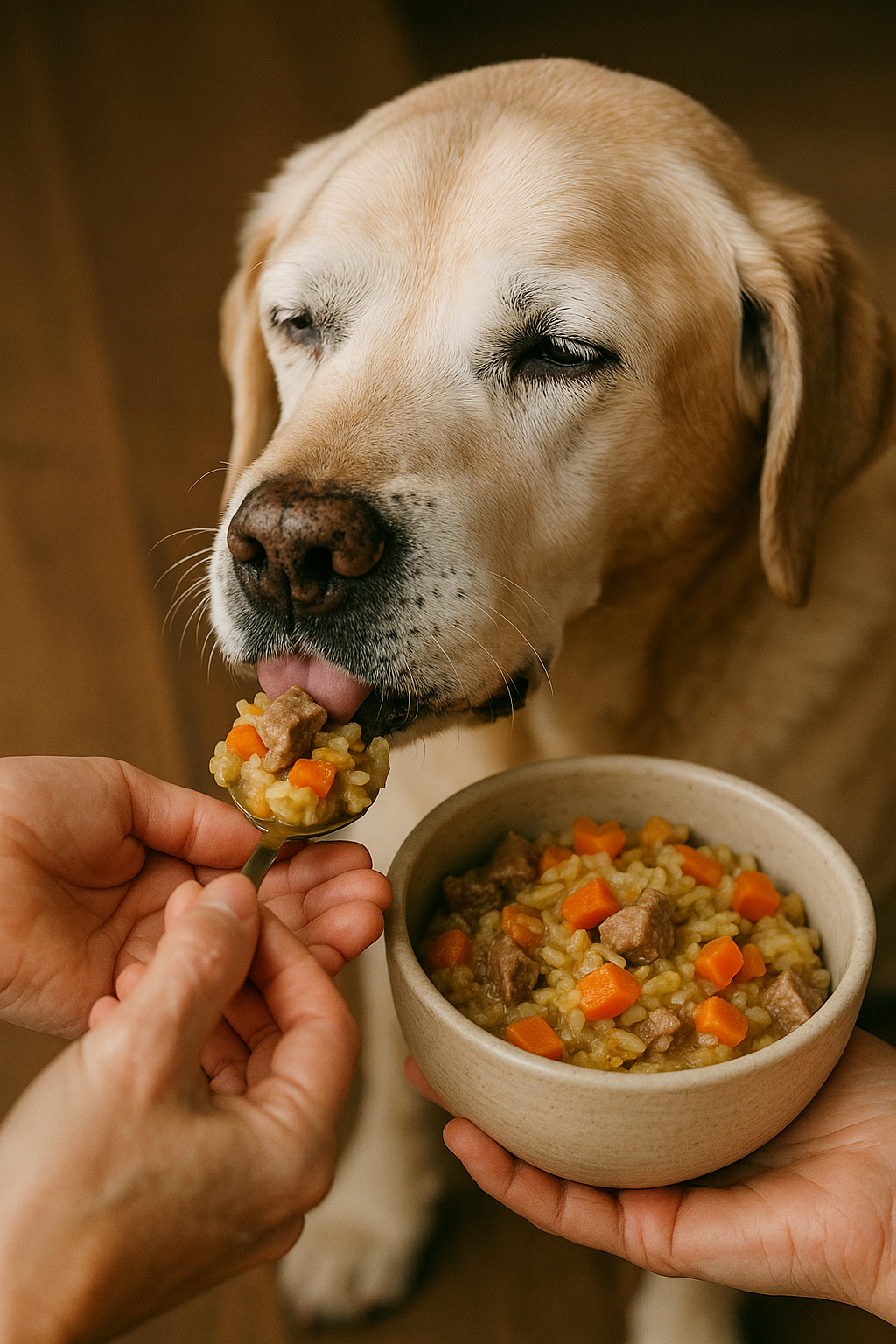
How to Tell If Your Dog is Underweight
You can visually assess your dog or use the Body Condition Score (BCS). Signs include:
- Visible ribs, spine, or hip bones
- No fat or muscle padding
- Lethargy or disinterest in activity
- Poor skin or coat quality
- Frequent diarrhea or vomiting
- Low stamina on walks
- Reduced appetite or picky eating
Tip: Ask your vet to assess your dog’s BCS (1–9 scale). A healthy senior should score around 4–5.
How to Help a Senior Dog Gain Weight: Step-by-Step Strategy
1. Choose the Right High-Calorie Dog Food
- Look for senior-specific formulas with:
- High-quality animal protein
- Healthy fats
- Easily digestible ingredients
- No fillers or by-products
- Joint and cognitive health support (glucosamine, DHA)
Recommended Options:
- Orijen Senior Dog Food
- Wellness Core Senior
- Hill’s Science Diet Adult 7+
- Royal Canin Aging 12+ for Small Breeds
Understanding how to help a senior dog gain weight begins with selecting nutrient-dense food that matches their aging needs.
2. Feed More Often
Instead of 2 meals per day, feed 3–4 small meals. Frequent feeding helps increase calorie intake without overwhelming digestion.
Meal Timing Tip:
- Breakfast
- Midday Snack
- Dinner
- Pre-bed Meal
This is a critical piece of the puzzle when learning how to help a senior dog gain weight efficiently.
3. Add Calorie-Boosting Toppers
Adding healthy toppers can make food more palatable and calorie-dense:
- Boiled eggs
- Full-fat Greek yogurt (plain)
- Peanut butter (xylitol-free)
- Bone broth
- Canned sardines or tuna (in water)
- Sweet potatoes
- Pumpkin puree
- Coconut oil or fish oil
Using homemade meals is another way how to help a senior dog gain weight in a healthy and tasty manner.
4. Try Homemade Dog Food Recipes for Weight Gain
🐶 Recipe: Turkey & Rice Muscle Builder
- 1 cup lean ground turkey
- ½ cup cooked brown rice
- ¼ cup cooked sweet potato
- 1 tsp olive oil
- 1 tbsp cottage cheese
Mix well and feed based on your dog’s size and calorie needs.
Make sure to consult a vet or canine nutritionist for balanced homemade meal plans.
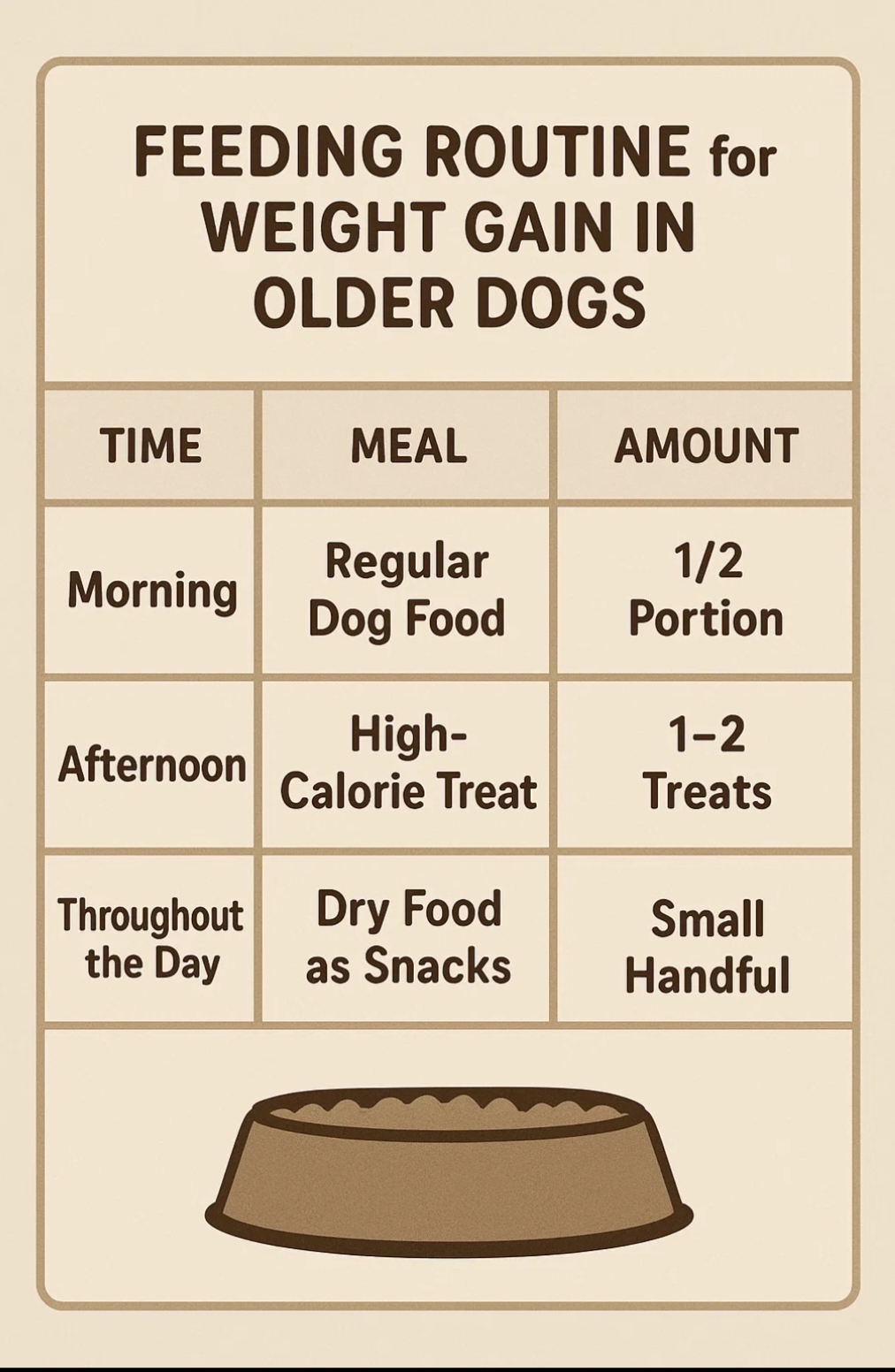
5. Use Vet-Approved Weight Gain Supplements
Supplements can provide concentrated calories and stimulate appetite.
Top Choices:
- Nutri-Cal by Tomlyn
- NaturVet Weight Gain Powder
- Rx Vitamins for Pets – NutriGest
- PetAg Dyne High Calorie Liquid
Only use products designed for dogs, and consult your vet before starting any supplement.
6. Make Mealtime Appealing
Encourage appetite by:
- Warming the food slightly
- Adding broth or wet food
- Hand feeding if needed
- Using slow feeders or puzzle bowls for stimulation
7. Gentle Exercise Stimulates Hunger
Lack of movement contributes to muscle loss. Encourage:
- 10–20 minute slow walks
- Gentle tug or fetch
- Swimming (great for arthritic dogs)
Exercise not only improves appetite but also stimulates metabolism and emotional health.
8. Track Progress Weekly
Keep a journal to record:
- Weight (in pounds or kg)
- Appetite rating (1–5)
- Stool quality
- Energy level
Adjust feeding plans accordingly. Aim for 1–2% weight gain per week.
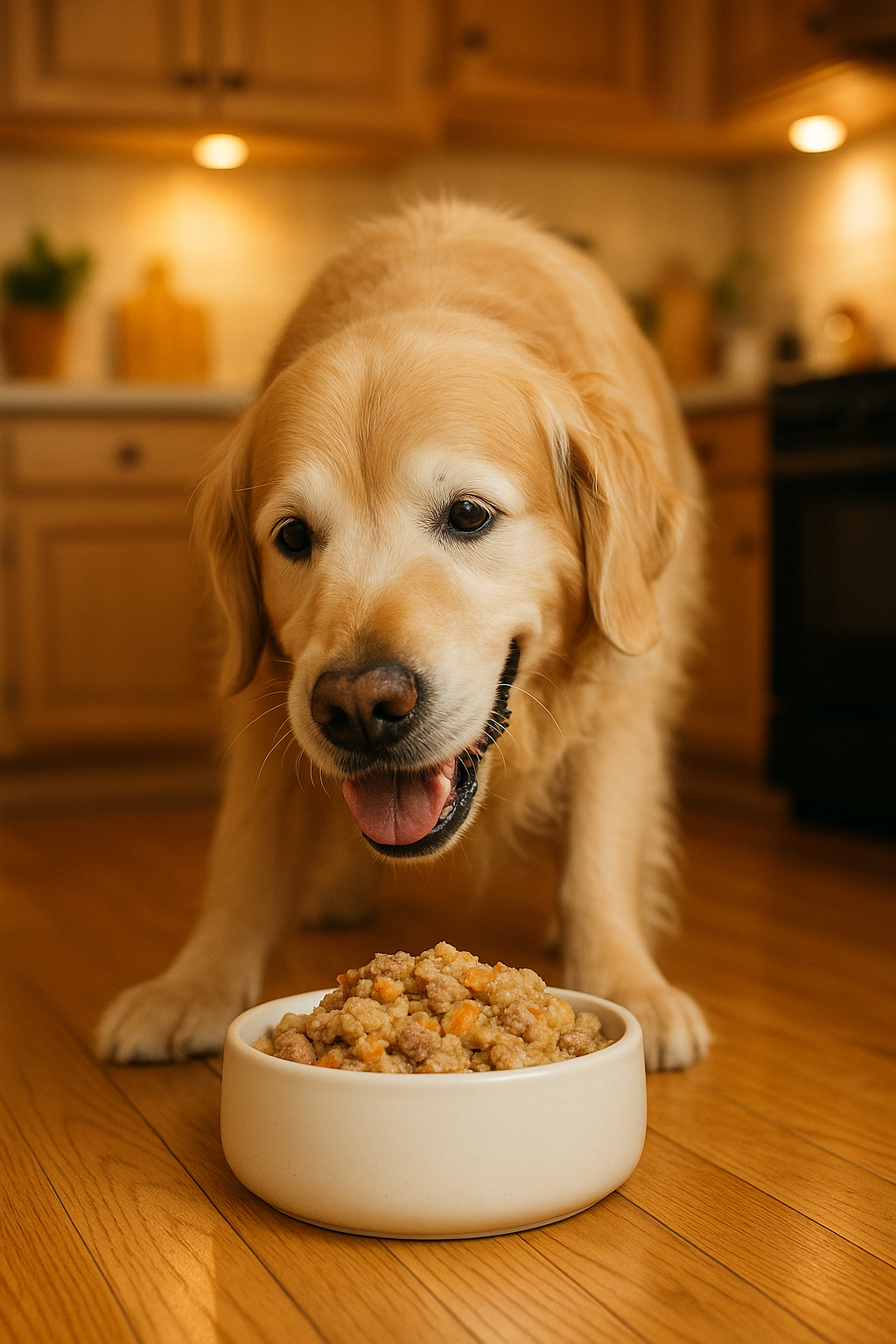
9. Vet Visit is Essential
Always consult your vet to:
- Rule out serious conditions
- Monitor kidney/liver function
- Adjust medications that may affect appetite
- Encourage appetite and build muscle with light activity:
Bonus Tips: Extra Support at Home
- Elevate food bowls for dogs with arthritis
- Reduce stress: create a calm, quiet mealtime
- Add herbs like ginger or fennel to aid digestion
- Provide orthopedic dog beds for joint support
- Monitor hydration (older dogs can dehydrate faster)
Related articles:
“How to Transition Your Dog to a Senior Diet”
“Top Homemade Senior Dog Food Recipes”
“Best Joint Supplements for Senior Dogs”
FAQs – How to Help a Senior Dog Gain Weight
Q1: Can I feed puppy food to my senior dog for weight gain?
A: Puppy food is calorie-dense but not always ideal for older dogs. Use it short-term and only under vet guidance.
Q2: How long does it take to see results?
A: Healthy gain is 1–2% body weight per week. Expect progress in 3–6 weeks.
Q3: Is it okay to feed human food?
A: Some are fine (rice, eggs, meat, vegetables), but avoid toxic items like grapes, chocolate, onions, garlic, etc.
Q4: What if my dog stops eating entirely?
A: Seek veterinary help immediately. Appetite loss in seniors could signal serious illness.
Conclusion
Helping an older dog maintain a healthy weight can extend their life and boost their happiness. By knowing how to help a senior dog gain weight through diet, lifestyle changes, and supplements, you’re giving them the best support possible in their golden years.
Always partner with your veterinarian for the safest and most effective results.
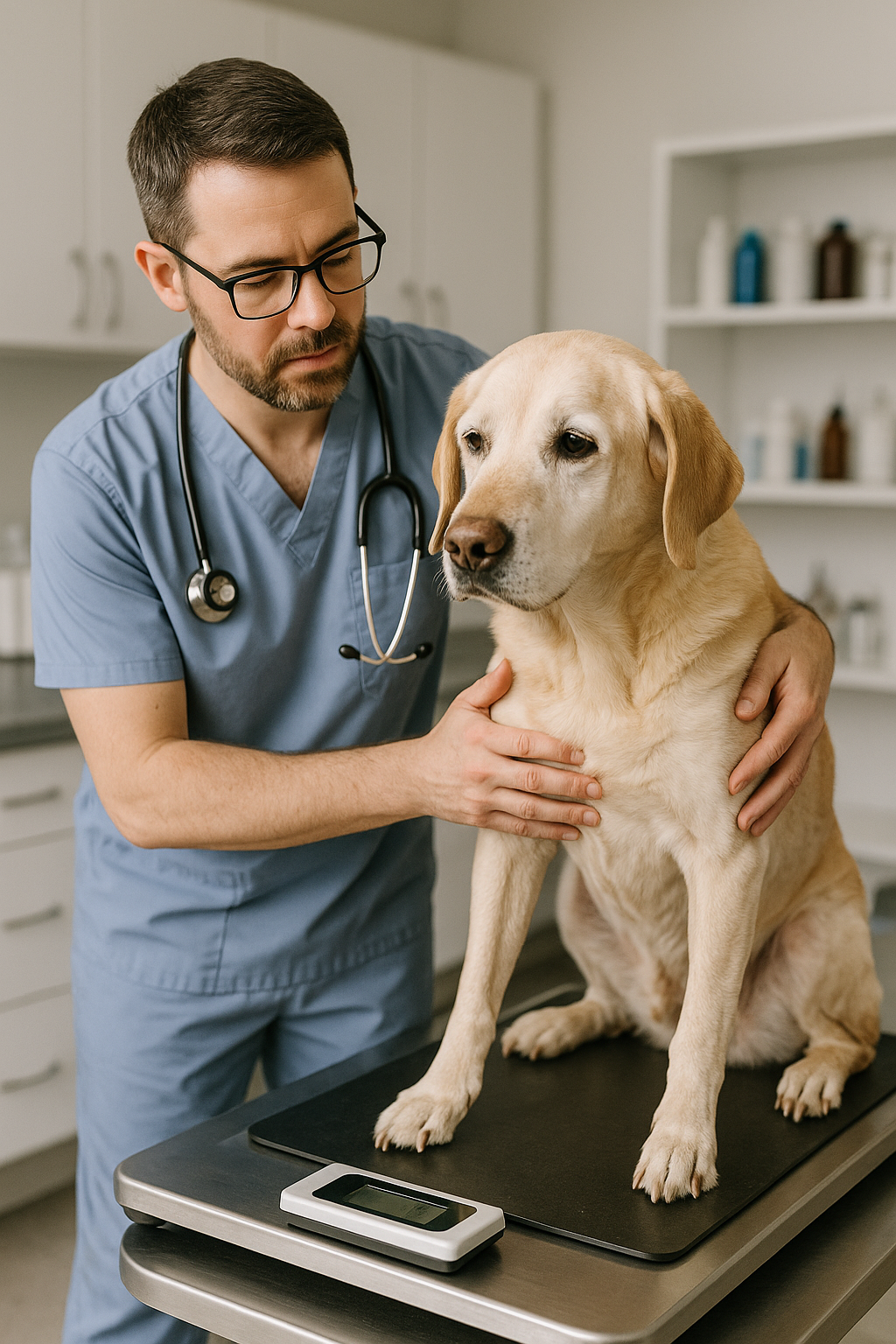
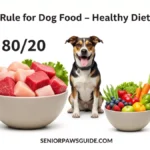









1 thought on “How to Help a Senior Dog Gain Weight: Vet-Approved Guide for Healthy Weight Gain”